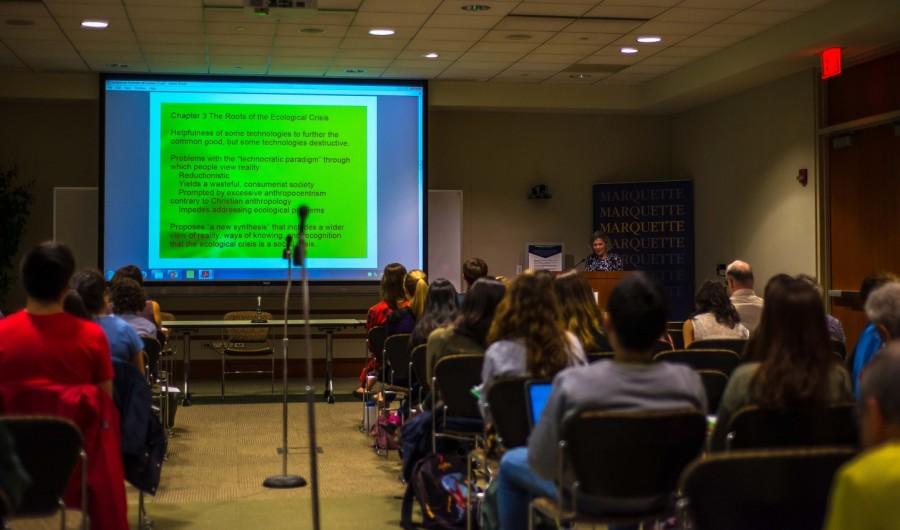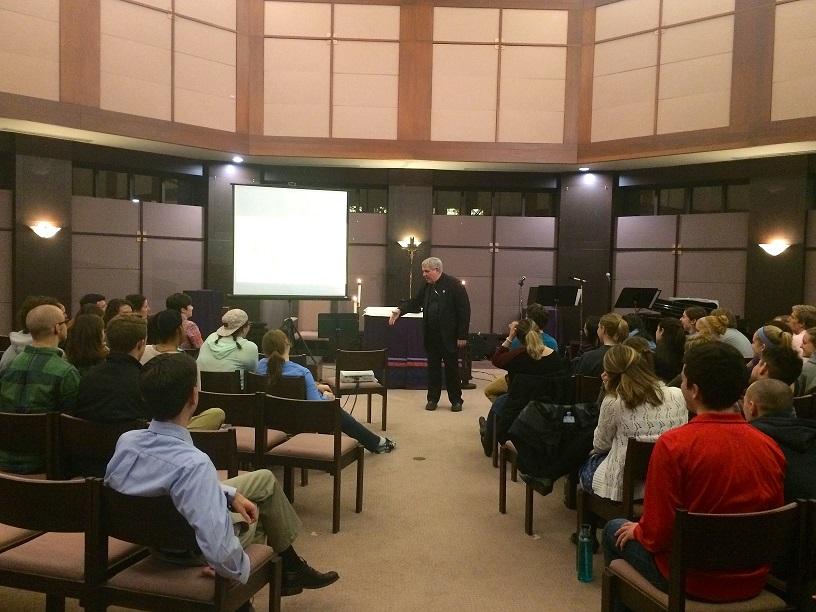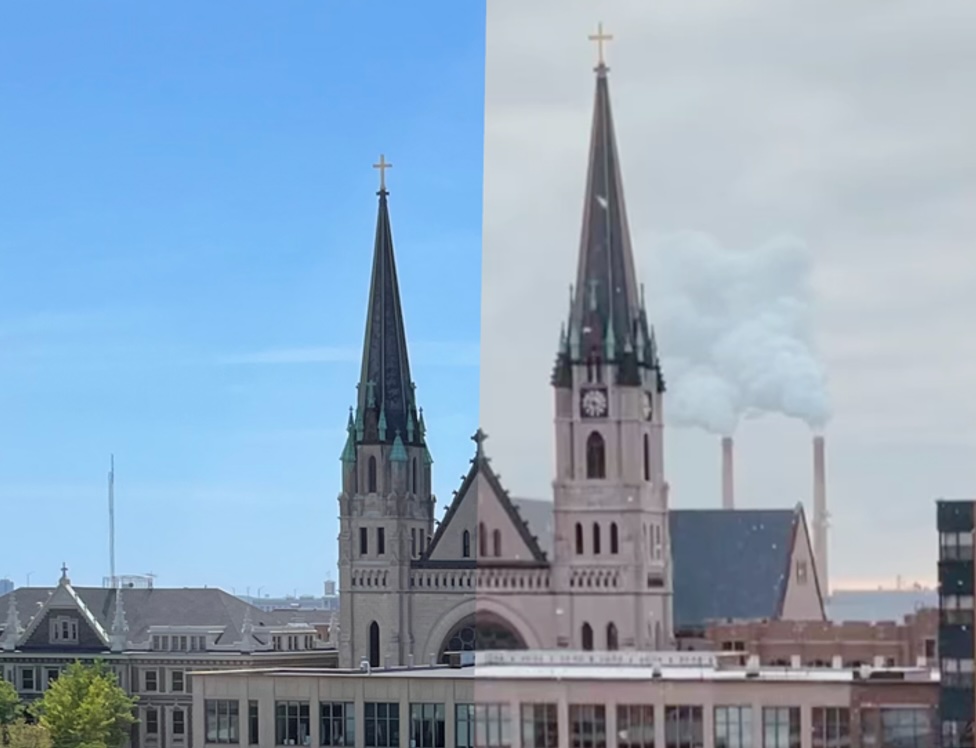More than 80 people gathered in Raynor Library’s Beaumier Suites on Oct. 6 to discuss Pope Francis’ encyclical Laudato Si and its impact on the university.
Associate theology professor Jame Schaefer opened the event with a quote from the encyclical, which focuses on environmental care.
“The challenges facing us today call for a renewal of that spirit of cooperation, which has accomplished so much good throughout the history of the United States,” the pope said in the encyclical.
The meeting started with an overview of the letter’s six chapters and their bullet points, which highlight problems with the technocratic paradigm that people use to view reality. Pope Francis says humanity is faced with a wasteful, consumerist society, in addition to a decline in human life and dignity.
Schaefer said this is the first encyclical completely dedicated to the human-earth relationship. The event included a discussion about climate change.
The biggest bullet point of the symposium targeted the discussion of
“The encyclical calls for an ecological conversion where we have an interior conversion, individually, and an outward conversion with community and networks,” Schaefer said.
Laudato Si points to the interconnection of ecological and human degradation, saying that everything is connected.
Schaefer said the encyclical’s takeaway is God’s love for all creatures and the need to love inclusively for all good. She also said to think about the poor and vulnerable, who are most affected by climate change although they don’t cause it.
The symposium then featured faculty perspectives from:
- Krassimira Hristova, assistant biological sciences professor
- Elaine Spiller, associate math, statistics and computer science professor
- David Nowacek, adjunct assistant professor of social and cultural sciences
- John Davis, business professor
- Lowell Barrington, department chair of poitical science
“How can we translate future values into present ones?” Davis asked. “Addressing these issues now prevents the future from high cost and catastrophic climate change.”
Anne Mosher, event attendee and senior in the College of Business Administration, visited Washington D.C. during the pope’s visit around two weeks ago. She said everything is related.
“What it really comes down to is love,” Mosher said. “We are all called to love in all that we do and this is what I think the basis and theme of Laudato Si is: love.”
Mosher said the pope is asking humans to care about Earth as well as their brothers, sisters and future generations.
The panel also discussed what is next for the Vatican and Marquette.
Barrington said students will soon receive a survey about how the Core of Common Studies should be reshaped in the coming years. He said faculty should also consider taking the survey.
“I know that this topic is now going to be a part of my Intro to Theology class,” Schaefer said. “But I want to know what students think we should be doing next.”






